By Julia Woods, Communications Specialist
In the Philippines, wetlands play a critical role in water storage and filtration, as well as mitigating the impacts of flooding in nearby communities. However, the proliferation of wildly invasive water hyacinths from Brazil has thrown these ecosystems out of balance.
The thick mats formed by the aquatic plants reduce light and oxygen in the water, change water chemistry, and negatively impact the plant and animal life in this critical ecosystem.
A group of Indigenous Manobo People decided to take action and clean up the wetlands they hold so dear. The best part? In doing so, they generated a source of sustainable income for local women.
Meet Panaghiusa Alang sa Kaugalingnan ug Kalingkawasan Inc. (PASAKK Inc.), an organization working to promote sustainable livelihoods such as traditional rice farming and Indigenous crafts.
With $3,667 from Global Greengrants Fund, PASAKK Inc. taught women in Bunawan, Philippines how to weave sandals and bags using water hyacinth fiber. The resulting crafts served as a source of income for these women, who sold their creations in the local market, while also reducing the spread of invasive water hyacinth: a win-win for all.
See below for a few beautiful examples of the crafts:
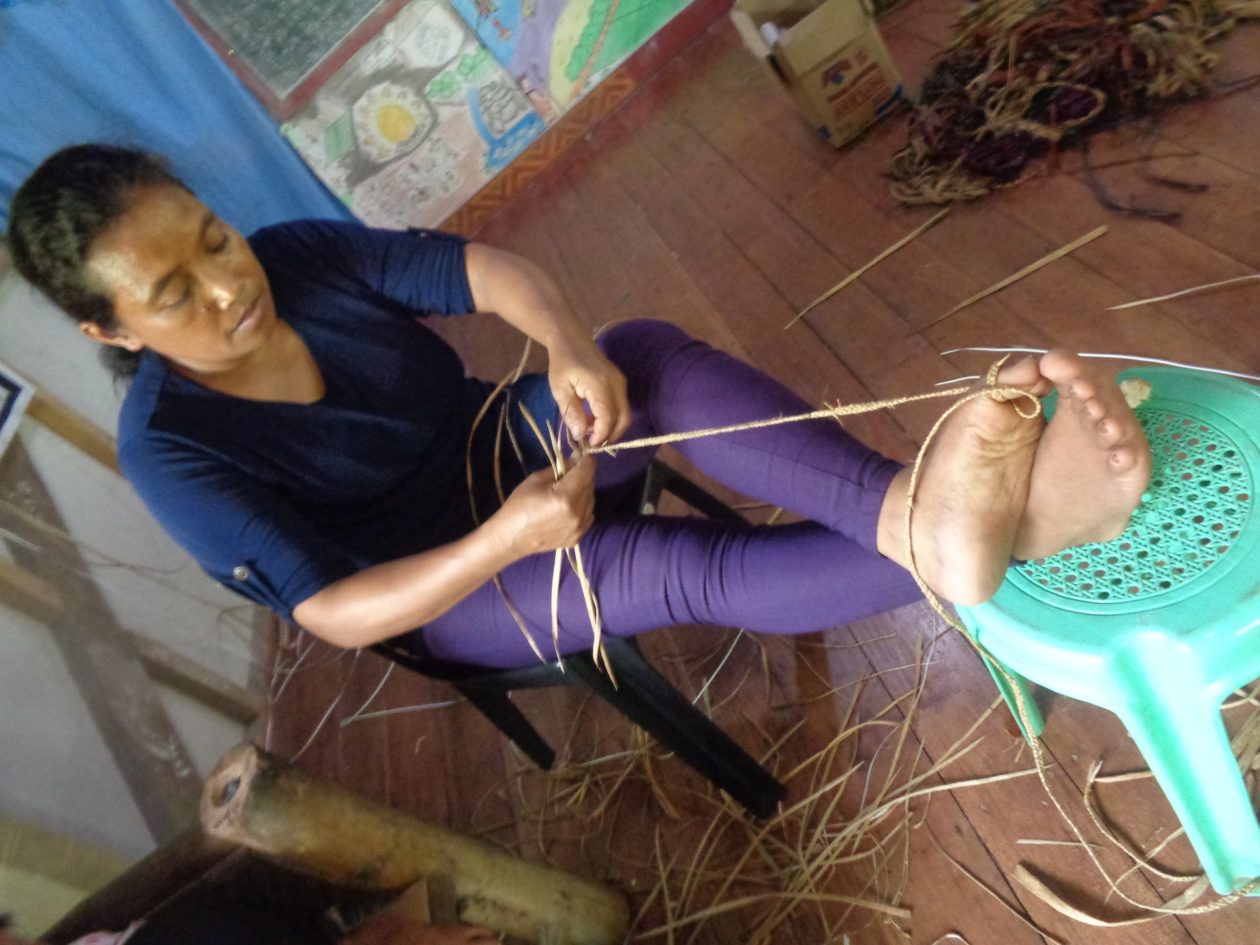
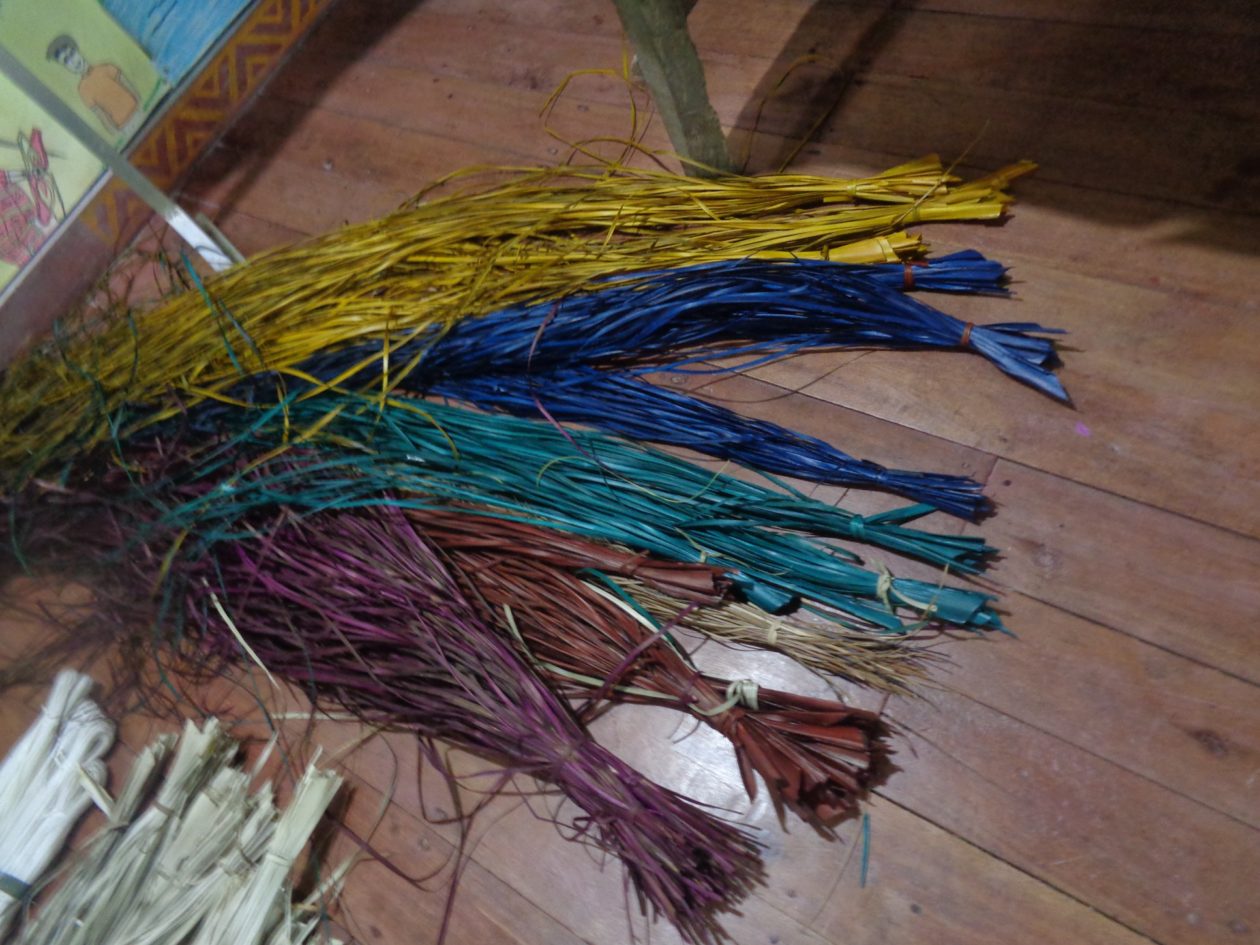
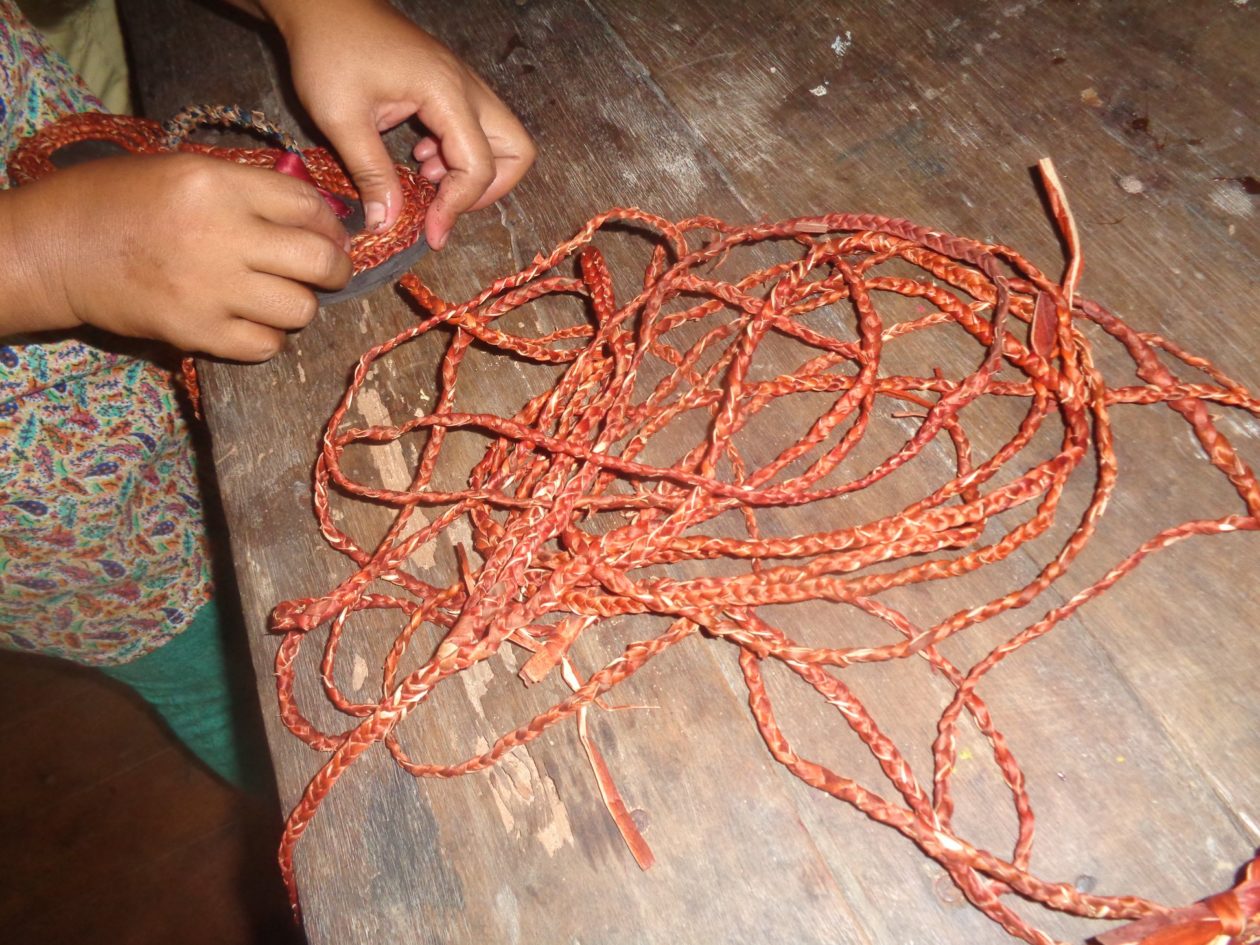
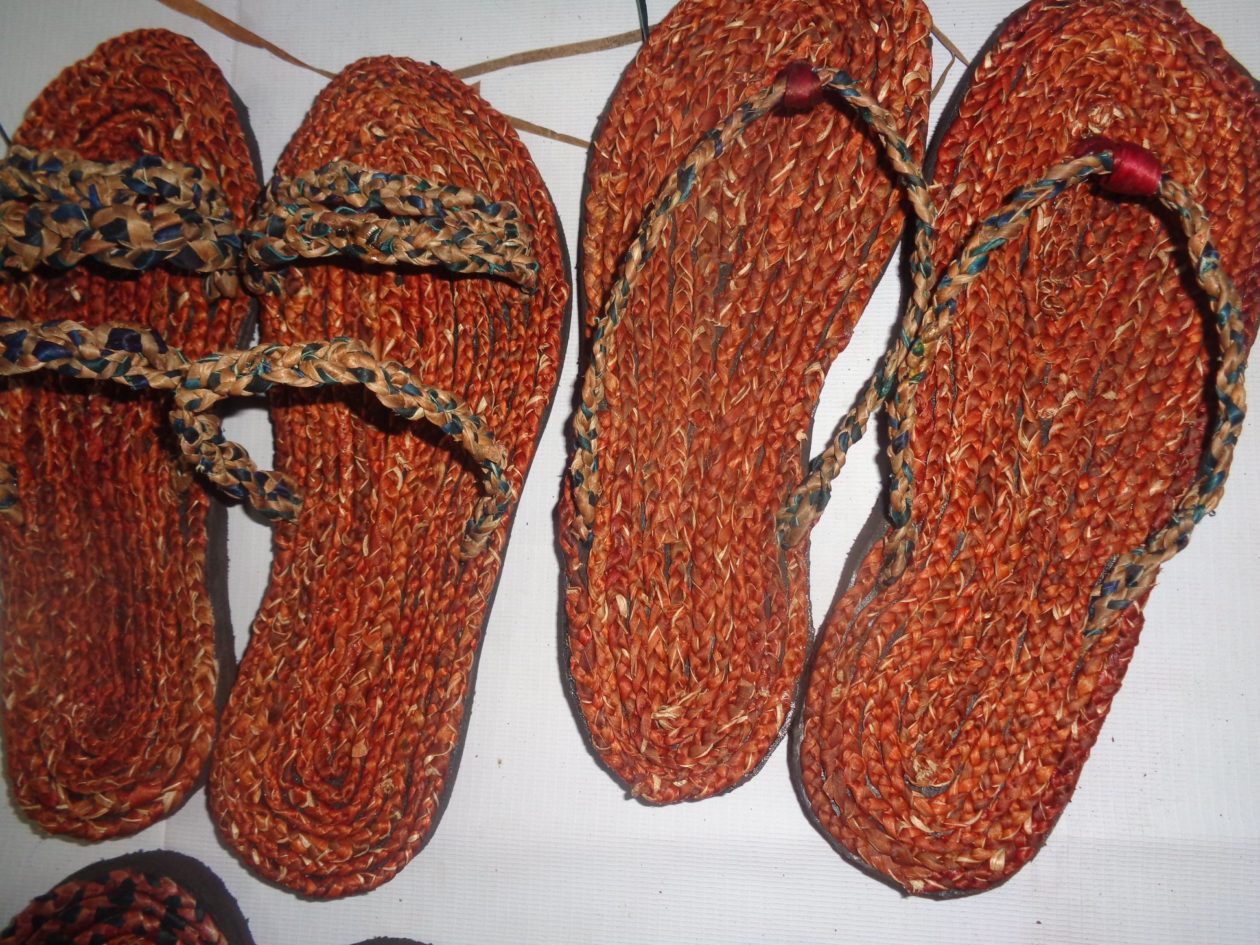
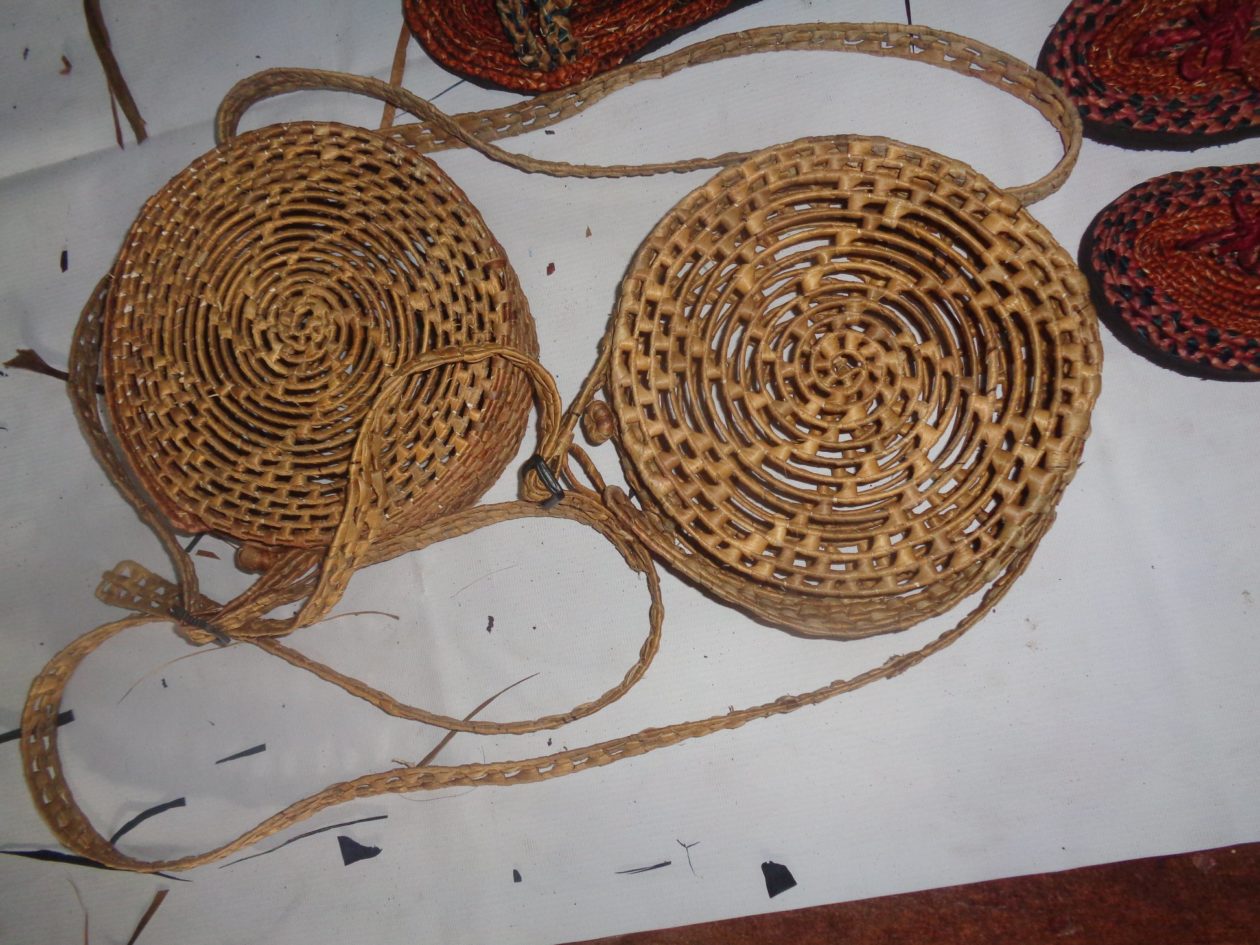
Local livelihoods are not just about income, but rather economic independence – how at-risk populations can continue to protect deep cultural livelihoods and respect natural places while also finding a fair wage.
That’s why here at Global Greengrants, we partner with farmers, fisherfolk, beekeepers, and artisans and invest in diverse local economies that are committed to restoring the environment, establishing a fair wage, and showing great resilience in the face of hardship and disaster. Learn more.
